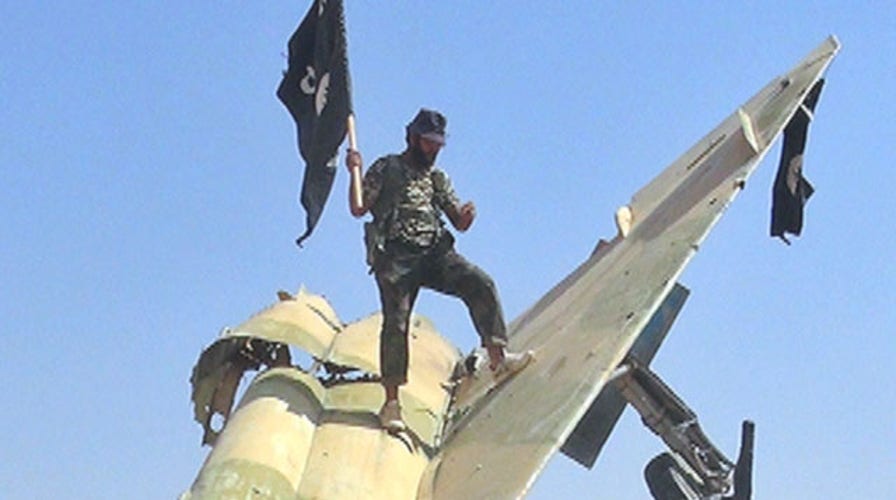Will Arab countries step up fight against ISIS?
The Washington Institute's David Schenker on coalition's next steps
Jordan’s stepped up support and United Arab Emirates’ rejoining airstrikes on ISIS has policy analysts questioning the U.S.-led coalition’s next steps.
Fox News National Security Analyst KT McFarland spoke to Middle East expert David Schenker about the Arab perspective on the fight against ISIS.
The murder of Jordanian pilot Lt. Muath al-Kaseasbeh seems to have had a significant impact. “The public opinion has shifted 180 degrees now to the point that everybody in Jordan supports going after ISIS … people seem, at least temporarily, to be willing to put more on the line,” said Schenker, the director of the Washington Institute’s program on Arab politics.
There is growing debate whether the coalition needs to develop an extensive ground component to their strategy.
“ISIS is not going to be dislodged by air campaign … over the last six months, ISIS has, in fact, expanded its territory,” said Schenker. “We are training Iraqi troops to launch an offensive to liberate Mosul, we are training very slowly the Syrian opposition. These are going to be the boots on the ground ultimately … there has to be more.”
Schenker says that if there isn’t a clear ground strategy, defeating the terror group will be nearly impossible.
The complicated political situation in Syria could hold up an expanded coalition campaign. While airstrikes were successful in driving ISIS out of Kobani, experts caution Syrian President Bashar Assad remains a viable threat to overall stability.
“By only targeting ISIS and leaving the Assad regime alone, we are confirming to most Sunni Muslims that we are siding with Iran and the Assad regime. This has the potential to drive more Sunnis into the arms of ISIS,” said Schenker, who served as the Pentagon's top policy aide on most Arab countries.
Looking ahead, he believes U.S. influence is crucial to regional unity. “Not all the Sunni Arab states are on board, and what it’s going to take is a lot of U.S. leadership and a greater sense of urgency … until we demonstrate that, it’s going to be hard to keep this coalition together.”

